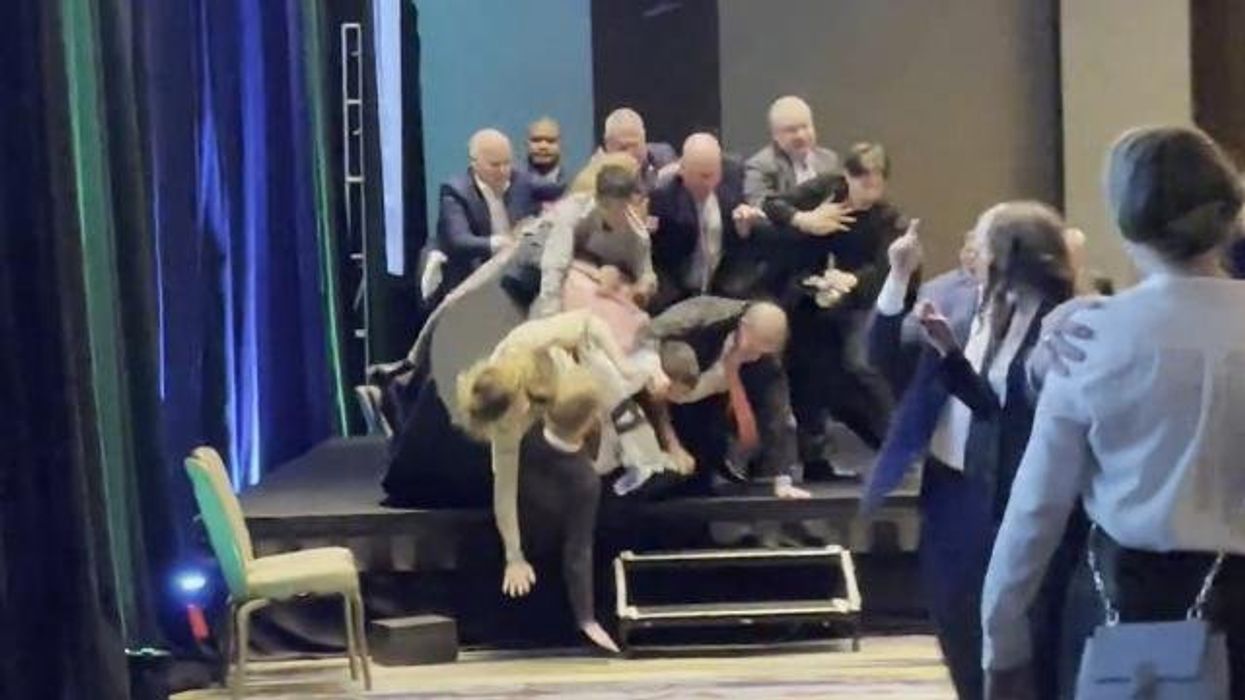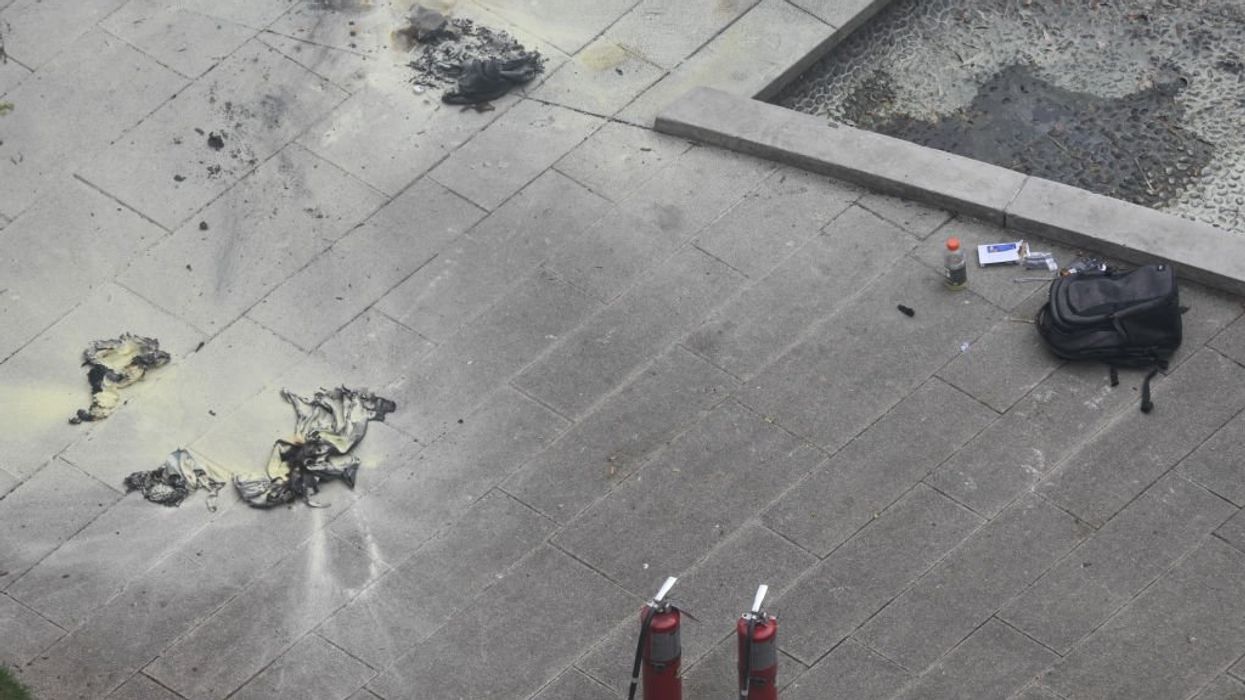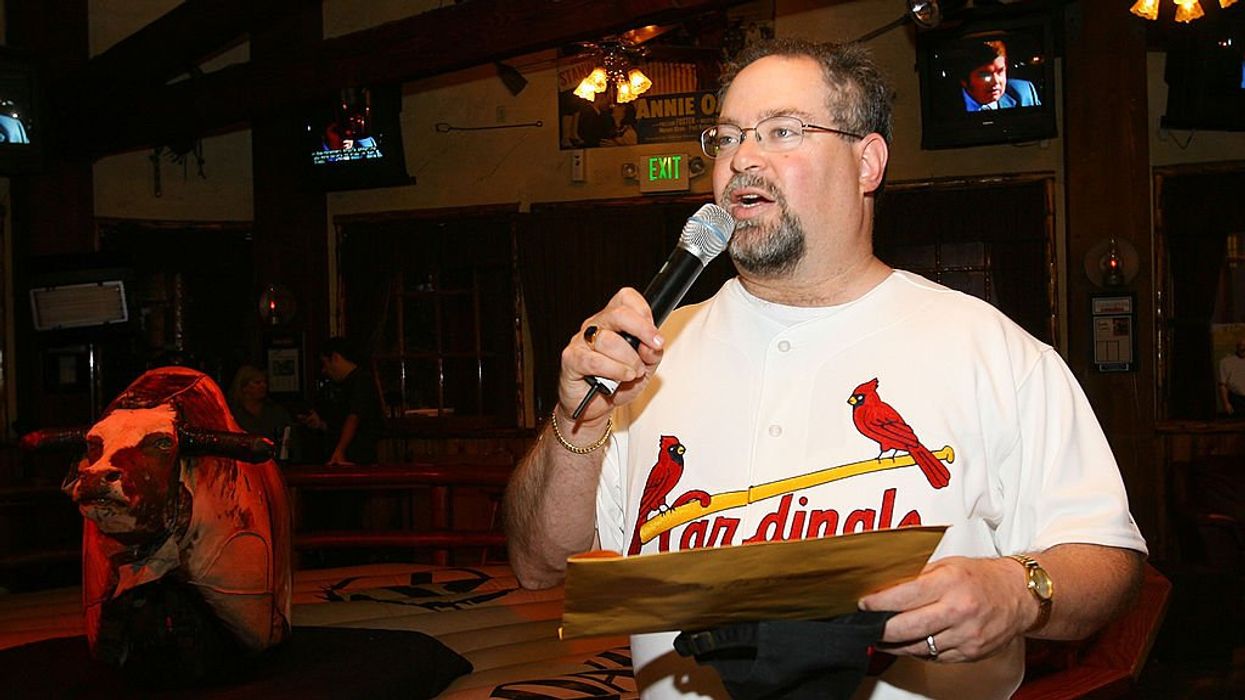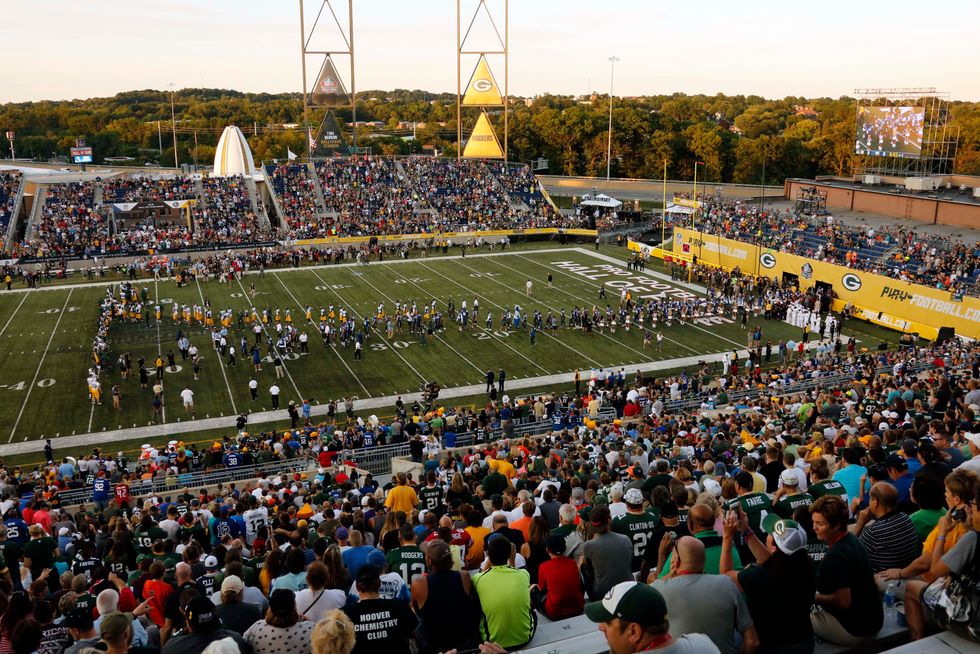
The Green Bay Packers and the Indianapolis Colts walk onto the field at Tom Benson Hall of Fame Stadium after their scheduled preseason NFL football game was cancelled due to unsafe field conditions caused by the painted logo at midfield, Sunday, Aug. 7, 2016, in Canton, Ohio. (AP Photo/Gene J. Puskar)
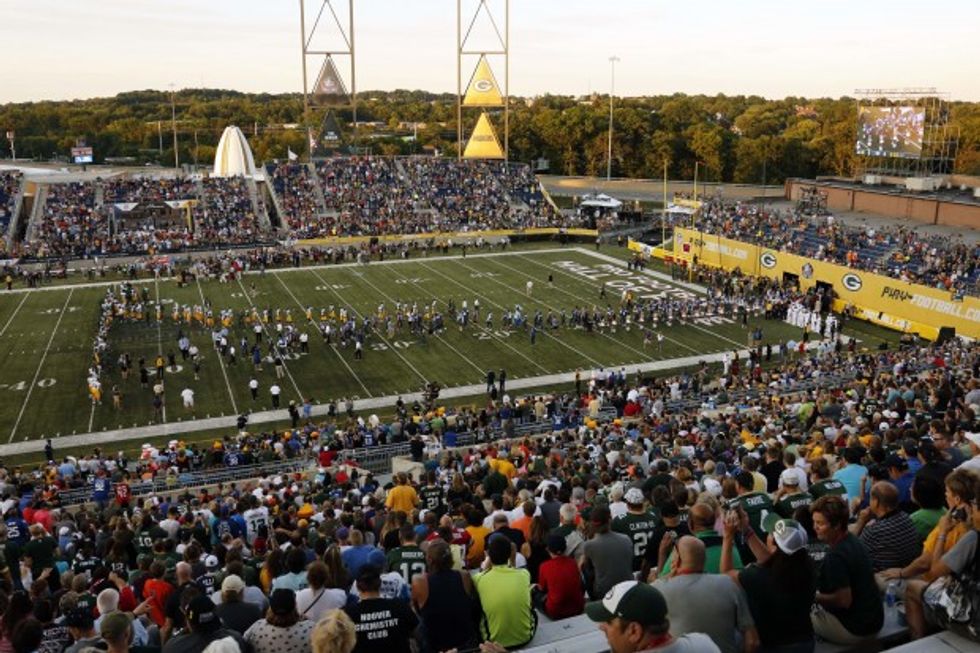 The Green Bay Packers and the Indianapolis Colts walk onto the field at Tom Benson Hall of Fame Stadium after their scheduled preseason NFL football game was cancelled due to unsafe field conditions caused by the painted logo at midfield, Sunday, Aug. 7, 2016, in Canton, Ohio. (AP Photo/Gene J. Puskar)
The Green Bay Packers and the Indianapolis Colts walk onto the field at Tom Benson Hall of Fame Stadium after their scheduled preseason NFL football game was cancelled due to unsafe field conditions caused by the painted logo at midfield, Sunday, Aug. 7, 2016, in Canton, Ohio. (AP Photo/Gene J. Puskar)
